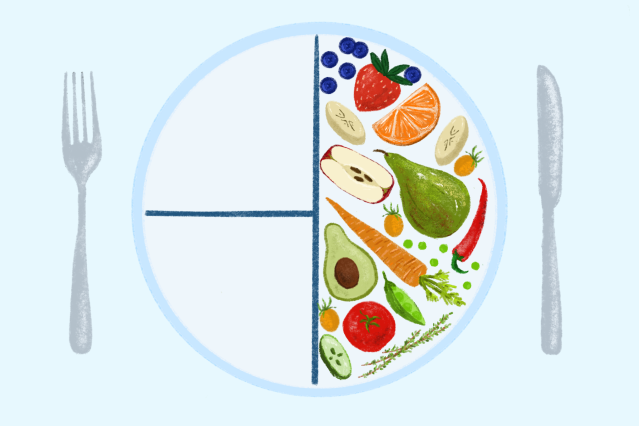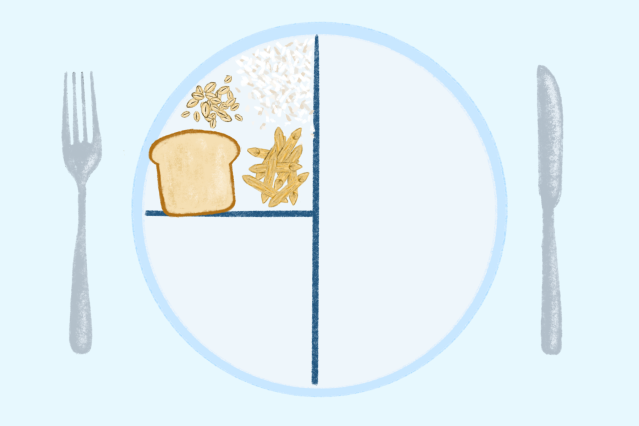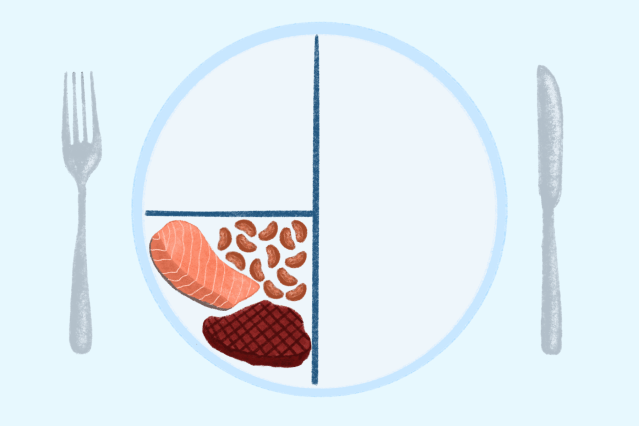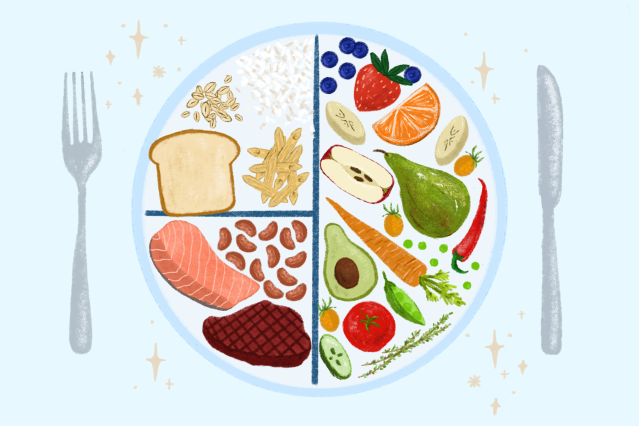We all remember our parents demanding that you “can’t leave the table until you finish your vegetables.” But, like most things, mom and dad were right. While a juicy cheeseburger or a slice of pepperoni pizza may be delicious, those indulgences don’t exactly qualify as a well-balanced meal. It’s essential to consume the necessary amounts of fruits and vegetables, whole grains, and protein at every meal to maintain a balanced diet. And the easiest way to achieve that is to think of your meal plate as three separate — but equally important — sections.

Fruits and Vegetables: 50%
Half of your plate should be composed of fresh produce, which is full of vitamins, antioxidants, and natural fibers that encourage digestion. A general rule of thumb is to “eat the rainbow” throughout your day. For example, apples, bananas, and berries are great for breakfast, and leafy greens, broccoli, and carrots are perfect for lunch and dinner. Avoid consuming too many starchy vegetables, such as corn and potatoes, because they negatively impact blood sugar. You should have five servings of fruits and vegetables daily — one serving equals 1 cup.

Whole Grains: 25%
Carbs help provide the body with the necessary energy to function, and many grains are also tied to improved cardiovascular health. There are two kinds of grains: whole and refined. You want to eat more whole grains than refined ones because whole grains give you more fiber, vitamins, and minerals, among other health benefits. Whole grains include brown rice, quinoa, whole wheat pasta, and oatmeal, while refined grains include white bread, white rice, and white flour. Experts recommend six servings of grains daily, three of which being whole grains. One serving could be one slice of bread, 1/2 cup of cooked oatmeal, or 1/2 cup of rice.

Protein: 25%
Protein is necessary for proper muscular growth, bone health, and appetite suppression. That said, it’s generally wise to limit your red meat consumption, as it is high in saturated fat and sodium, and focus on eating lean proteins like poultry and fish. If you follow a vegetarian or vegan diet, beans, nuts, tofu, and peanut butter are great, protein-rich meat alternatives. Unlike the other components on your plate, how much protein you consume daily depends on your weight. The recommended daily allowance is .8 grams of protein per kilogram of body weight, or .36 grams per pound. Use this online protein calculator to determine your daily protein intake.
Other Guidelines to Keep in Mind
Healthy oils can help reduce the body’s cholesterol levels, contributing to better heart health. However, too much oil isn’t healthy, so use vegetable-based ingredients like olive and sunflower oil in moderation. Avoid using hydrogenated oils such as margarine or vegetable shortening, as those are loaded with trans fats.
Generally, it’s best to drink water with every meal and limit your milk and dairy intake to no more than two servings per day. If you want to drink juice in the morning, stick to one 8-ounce glass and avoid sugary drinks like soda.
Featured Image Credit: Illustration by Madison Hunt
More From Our Network
Better Report is part of Inbox Studio, an email-first media company. *Indicates a third-party property.














